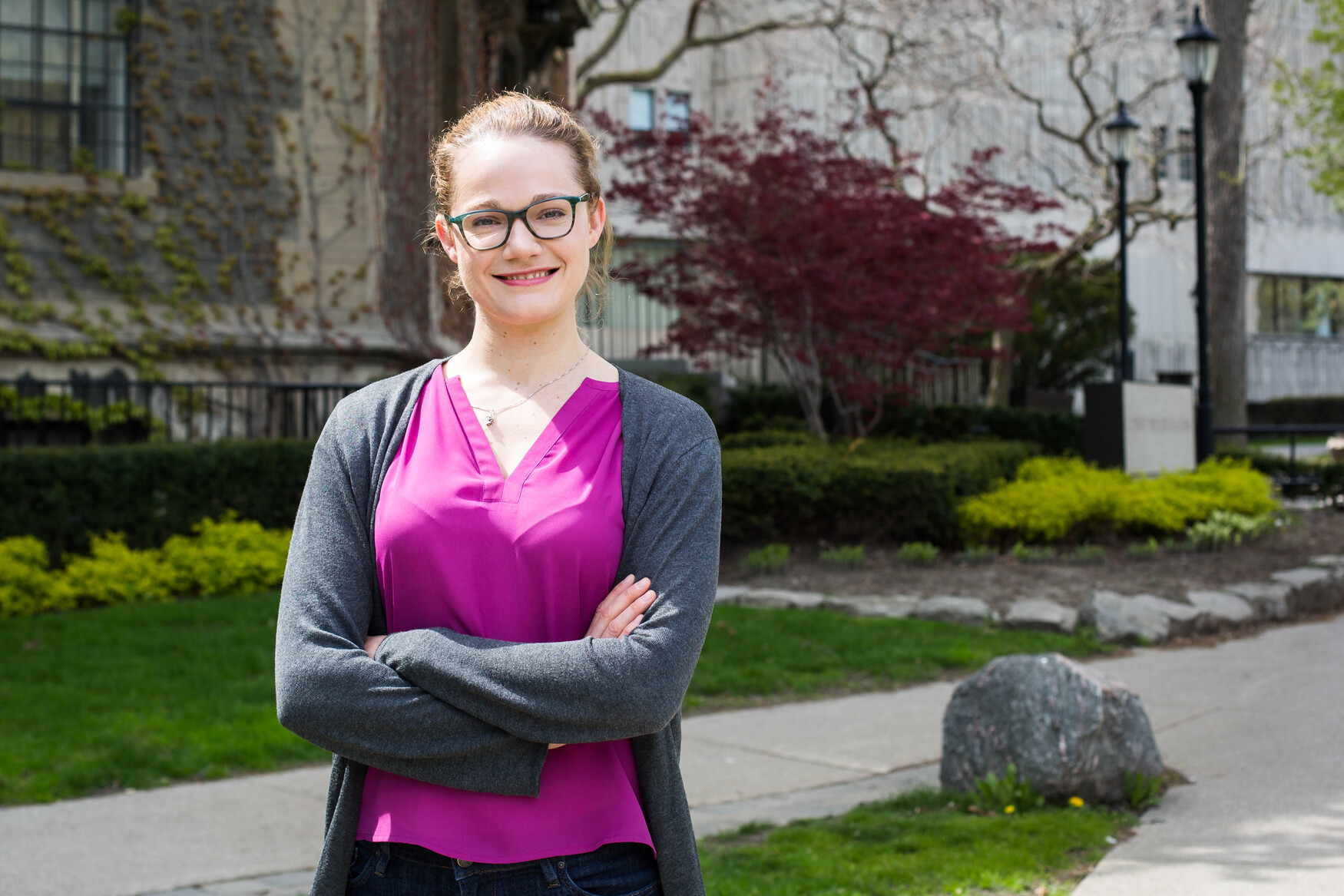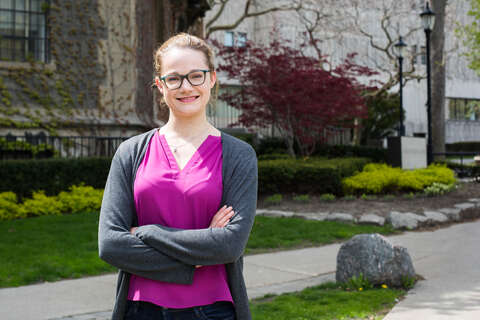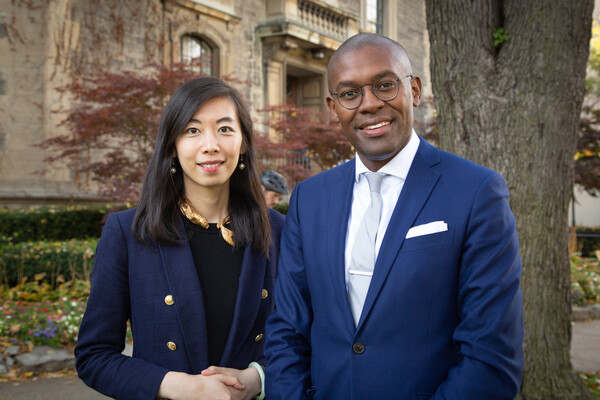
Liam Mitchell

If it hadn’t been for a research project during her undergraduate degree, it would be unlikely that Susan Armstrong would be striding across the stage of Convocation Hall this spring to collect MD and PhD degrees. Armstrong was training to be a respiratory therapist at the Michener Institute of Education at UHN when she undertook a required research project. She worked with a team of researchers at McMaster University and the experience was transformative. Bitten by the research bug, Armstrong went on to earn an honours degree in science before joining U of T’s MD/PhD program. Her graduation on June 6 will mark the end of 15 years of working on one university degree or another. Armstrong spoke with Faculty of Medicine writer Liam Mitchell about her journey to Convocation Hall.
What sparked your interest in research?
I had the opportunity to do a research project with a team at McMaster, and it was just fascinating to me. It made me want to keep asking questions. That’s one of the great things about the MD/PhD program: it trains you how to formulate a question and know how to ask it in a way that you can answer it through a methodical process.
Was this always the path you planned to go down?
Not at all. I’ve been very fortunate to see opportunities come along and capitalize on them. If you had asked me if I would be doing an MD/PhD as a high school student, I couldn’t imagine it. But the experience at McMaster lit a passion for research in me. I then investigated different options and was able to find opportunities, like those here at U of T.
What was the focus of your research during your PhD?
I tell people that I investigate leaky blood vessels. When you get sick with influenza, for example, the lining of your blood vessels can become more permeable. That leads to fluid accumulating in your lungs interfering with breathing. More formally, I investigate dysfunction of the endothelium in a variety of diseases. My work explored how this dysfunction occurs and ways we can block these leaks to provide treatments. I worked with Dr. Warren Lee at St. Michael’s Hospital.
What’s next for you?
In July, I’ll start my residency in anatomical pathology here in Toronto. That will be followed by sub-specialty training. I’m currently preparing to write the second part of the US licensing exam. I’m not sure that I want to work in the United States, but I want to leave the door open so I can go wherever the best training is available.
Will you still have the opportunity to be involved in research?
Absolutely. I’ve been very clear throughout the residency admission process that I am interested in continuing to be engaged in research. But at the same time, I think it’s good to be somewhat vague about the future. As with other things, I want take advantage of opportunities as they come. But eventually I hope to start a research program of my own, which I hope will be in Canada.
For the full schedule of #UofTGrad17 convocation ceremonies, visit http://www.convocation.utoronto.ca/events.

